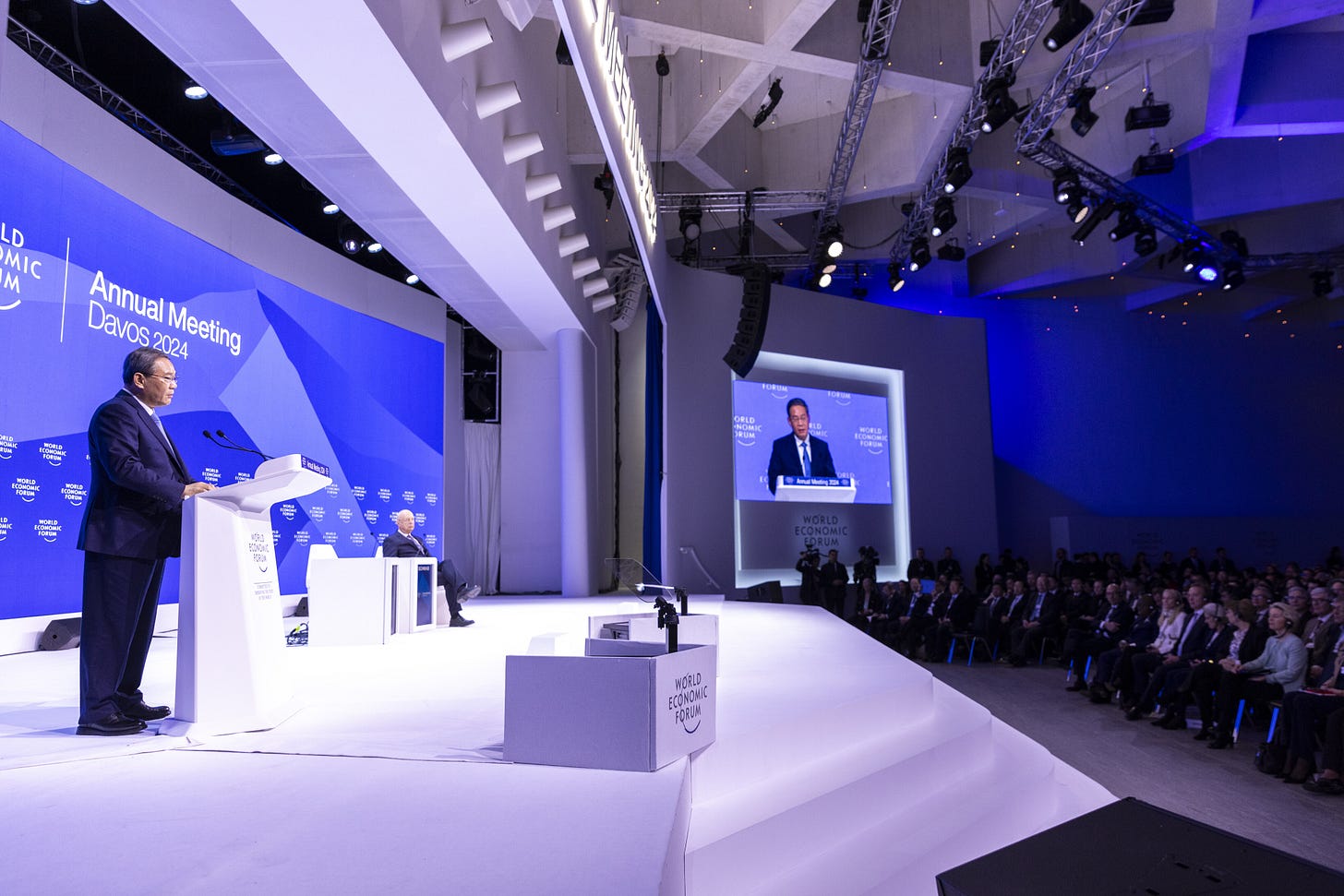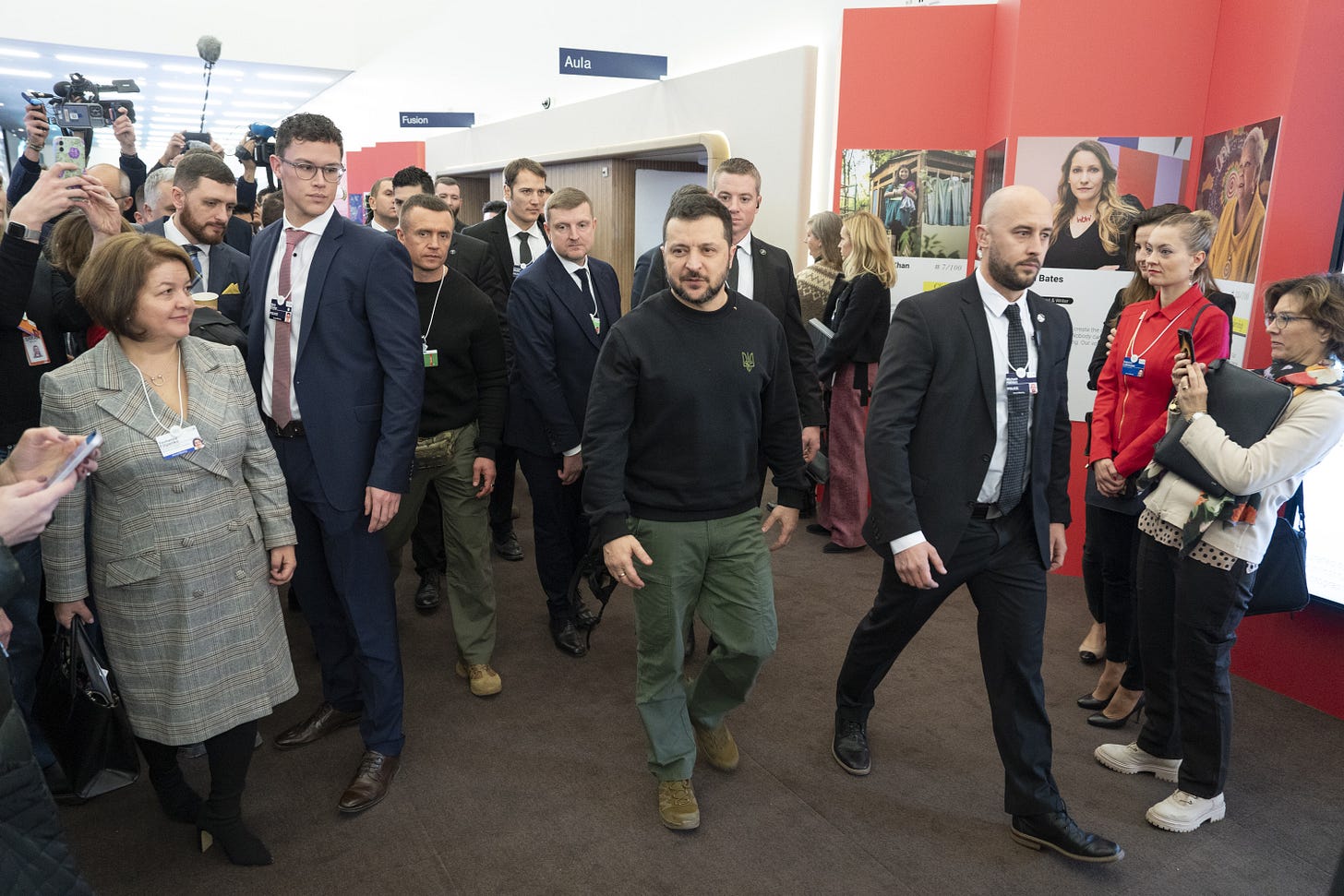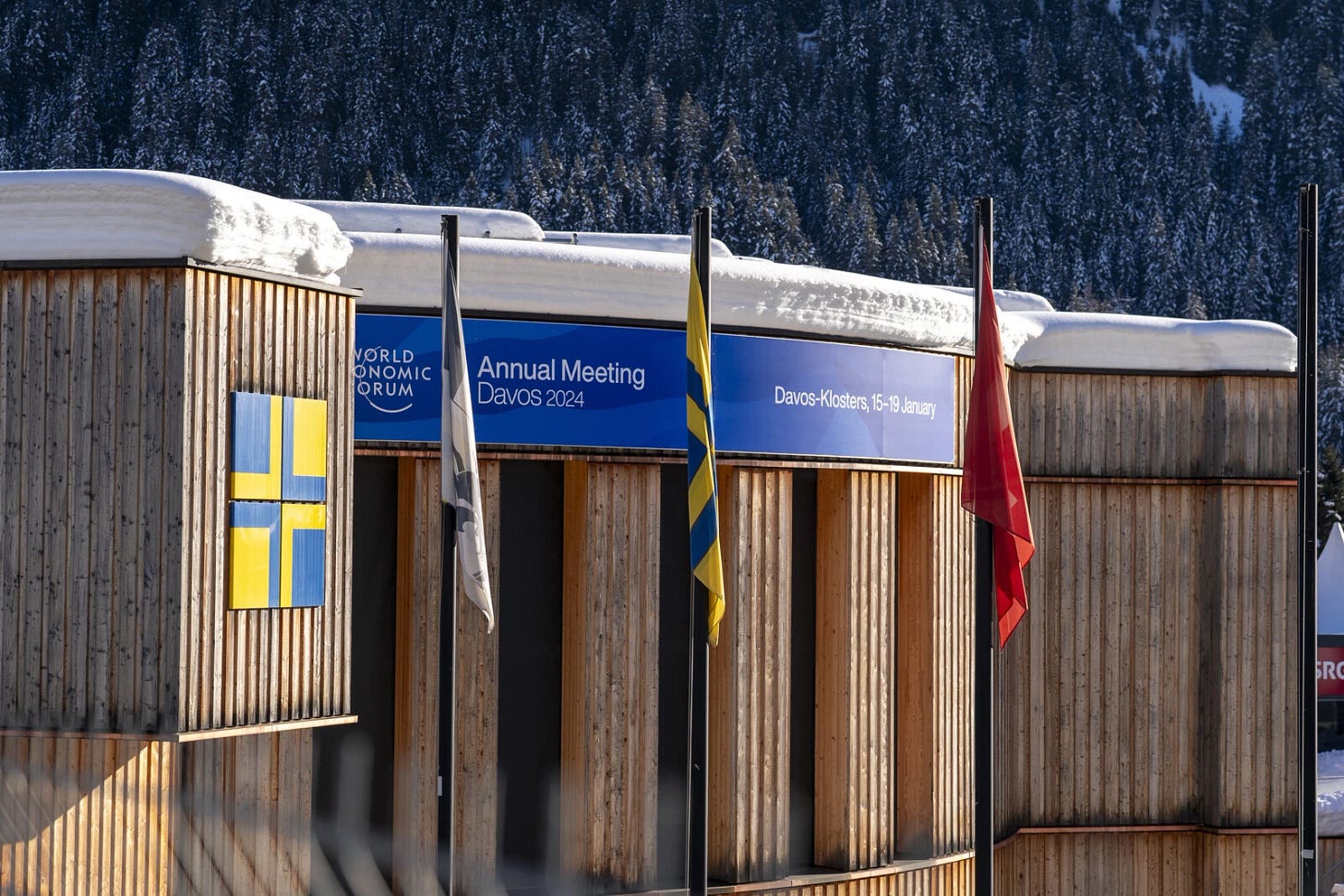How the world's elite define 'trust'
At the World Economic Forum Annual Meeting in Davos this week, the conversation about rebuilding trust took an interesting turn.
Many Davos-watchers sneered at the irony of the theme of this year’s global gabfest being Rebuilding Trust.
“‘Rebuilding Trust’ is the recycled and rather threadbare Davos theme for 2024,” Dr. Robert Malone intoned.
“The outfit that coordinated the world-wide Covid-19 response (that perhaps birthed the very concept of Covid-19 itself), and especially pushed mRNA vaccines on the credulous global public — this gang of super-wealthy, super-connected, super-important celebrity punks, poohbahs, pricks, and predators wants a cuddle.” quipped James Howard Kunstler.
Well, it became abundantly apparent on Tuesday that the Davos crowd wasn’t using the word ‘trust’ as a verb, as in:
“to believe in the reliability, truth, ability, or strength of something” or “to allow someone to have, use, or look after (someone or something of importance or value) with confidence.”
During his opening homily, Der Schwaben Klaus — to borrow the moniker from our favorite contrarian, Doug Casey — made it clear he and his ilk were using the word as a noun, as in:
“the state of being responsible for someone or something” or “an arrangement whereby a person (a trustee) holds property as its nominal owner for the good of one or more beneficiaries.”
Trust, Klaus Schwab says, “is not just a feeling. Trust is a commitment to action. To believe. To hope.”
To rebuild trust, he says, “there’s a fundamental need to embody trusteeship, which means to care for the greater good.”
See how he did that? A quick, dancer-like move from ‘trust’ to ‘trustee’? In one fell swoop, he defined himself and his peers as the select and superior group who will be responsible for managing humanity “for the greater good.”
He went on to tell the 2,800 gathered leaders from 120 countries that they must rediscover and embrace a narrative of themselves “as trustees for a better future,” a narrative that he says has driven humanity since its inception.
Schwab loves to talk about narratives. In fact, he wrote a whole book called “The Great Narrative for a Better Future.”
Think about that for a second. A narrative is a story. Narratives are carefully constructed accounts or representations of situations. Narratives may or not be based in reality.
The trusteeship narrative, says Schwab, “isn’t about short-term gains or individual successes. It is about stewardship. About preserving and enhancing our world for current and future generations.”
He compelled his listeners to think beyond borders (i.e., One World government) and to place collaboration over competition (i.e., a multistakeholder model), sustainability over expediency (i.e., One Health), and empathy over apathy (i.e., diversity, equity and inclusion).
“As leaders in government, business, and society,” he said to the thousands of elites in attendance, “we bear a particular responsibility to rebuild trust in how we assume our role as trustees. Let’s use this annual meeting to rebuild trust by exercising our trusteeship individually and collectively for safeguarding the future of humanity and nature.”
#notmytrustees






They are despicable slime! BUT! Did you see Argentina's Milei's little speech about socialism killing the West? (Do note that Western media all but ignored it, imagine that!) You can find the whole thing online but here's a 90 second highlight: https://www.youtube.com/watch?v=7CIRI4XKSDQ
Really interesting about the linguistic twist from trust to trustee ...that means they will look after all our “stuff” for us. Meaning we will own nothing etc etc... same old tired plot, just a different wrapping , thank you 🙏🏻